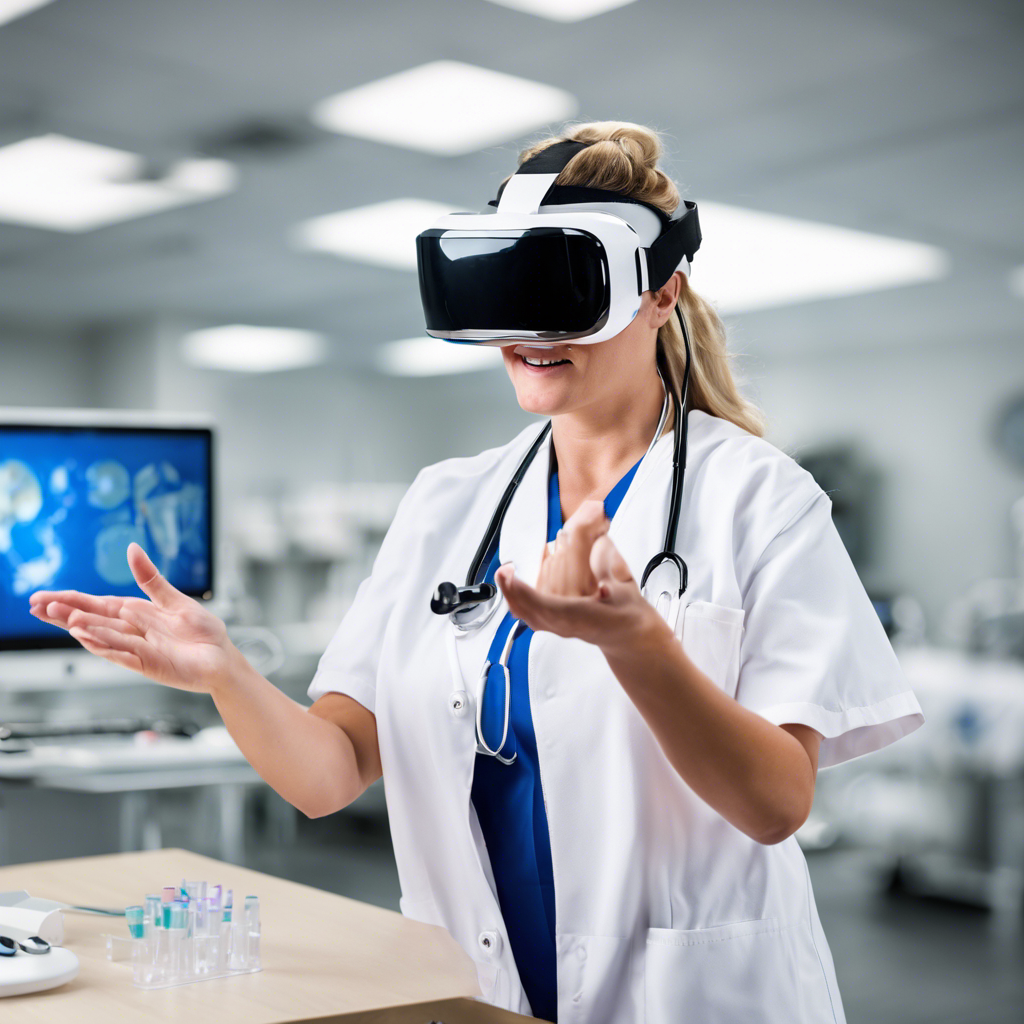Green Bay college pioneers the use of virtual reality to prepare nursing students for real-life patient scenarios
In an effort to push the boundaries of hands-on learning, Northeast Wisconsin Technical College (NWTC) in Green Bay is revolutionizing nursing education with the of a cutting-edge Extended Reality Lab. This state-of-the-art facility harnesses the power of virtual reality (VR) to provide nursing students with immersive experiences that simulate real-life patient encounters. By offering a safe and controlled environment for practice and experimentation, NWTC aims to equip its students with the skills and confidence needed to excel in their future nursing careers.
Bridging the Gap between Theory and Practice
The Extended Reality Lab at NWTC has been in operation since August, catering primarily to students pursuing the Licensed Practical Nurse (LPN) or Registered Nurse (RN) paths. By utilizing VR technology, students can gain valuable experience that may be limited in traditional clinical rotations. Mitch Luker, NWTC’s Coordinator of Nursing Simulation, emphasizes the importance of this hands-on approach, stating that it allows students to “take chances with their knowledge” and learn from their mistakes in a safe environment. The lab serves as a platform for students to apply their theoretical knowledge and develop critical thinking skills, ultimately bridging the gap between classroom learning and real-world practice.
Fostering Collaboration and Innovation
One of the key benefits of NWTC’s Extended Reality Lab is the opportunity for collaborative learning. Madison Farina, an aspiring RN, highlights the value of working with fellow classmates in the lab, stating that it allows them to bounce ideas off each other and gain different perspectives. This collaborative environment not only enhances teamwork skills but also fosters innovation as students explore creative solutions to complex patient scenarios. The lab serves as a catalyst for peer-to-peer learning, enabling students to build a strong foundation of practical skills while also developing their communication and problem-solving abilities.
Addressing the Nursing Shortage
NWTC recognizes the urgent need to address the nursing shortage in Wisconsin and aims to utilize the Extended Reality Lab as a solution. According to the American Association of Colleges of Nursing, the average age of registered nurses in 2020 was 46.2 years old. With an anticipated shortage of approximately 13,900 nurses by 2030, NWTC aims to increase its number of nursing graduates by leveraging the power of simulation. By reducing the reliance on traditional clinical sites and incorporating virtual reality experiences, the college hopes to attract more students to the nursing profession and meet the growing demand for healthcare professionals.
Complementing Clinical Trials
It is important to note that the Extended Reality Lab does not replace traditional clinical trials but rather complements them. While clinical rotations provide invaluable real-world experience, the lab serves as a supplement to enhance students’ confidence and competence. By offering a controlled environment where students can practice and refine their skills, the lab acts as a stepping stone towards becoming proficient in the nurse role. Virtual reality headsets are available at eight stations within the lab, allowing students to immerse themselves in realistic simulations that mirror the challenges they will face in their future careers.
Conclusion:
NWTC’s Extended Reality Lab is revolutionizing nursing education by harnessing the power of virtual reality to bridge the gap between theory and practice. By providing nursing students with immersive experiences, the lab enhances their skills, confidence, and critical thinking abilities. Moreover, the lab serves as a collaborative space that fosters innovation and prepares students for the challenges of real-world patient care. As NWTC strives to address the nursing shortage, the Extended Reality Lab offers a promising solution to increase enrollment and produce a new generation of highly skilled and competent nurses. With the success of this pioneering initiative, other institutions may soon follow suit, ushering in a new era of experiential learning in healthcare education.











